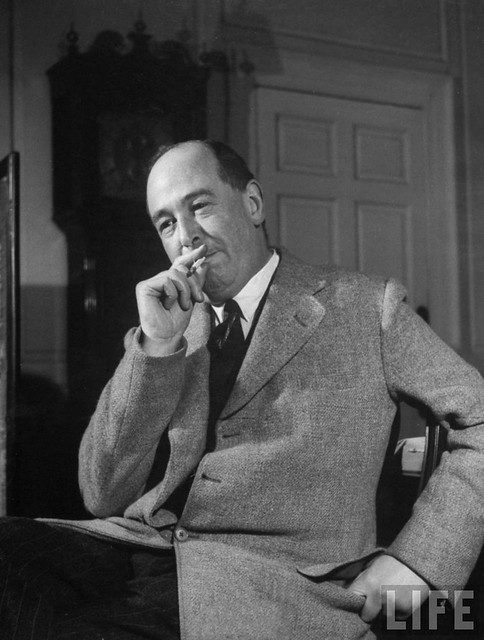
Theodore Roosevelt, Sixth Annual Message to Congress:
When home ties are loosened, when men and women cease to regard a worthy family life, with all its duties fully performed and all its responsibilities lived up to, as the best life worth living, then evil days for the commonwealth are at hand. There are regions in our land, and classes of our population, where the birth rate has sunk below the death rate. Surely it should need no demonstration to show that willful sterility is, from the standpoint of the human race, the one sin for which the national penalty is national death, race death–a sin for which there is no atonement.
G. K. Chesterton, The Well and the Shallows, New York: Sheed & Ward, 1935, 233:
It has been left to the last Christians, or rather to the first Christians fully committed to blaspheming and denying Christianity, to invent a new kind of worship of Sex, which is not even a worship of Life. It has been left to the very latest Modernists to proclaim an erotic religion which at once exalts lust and forbids fertility . . . The new priests abolish the fatherhood and keep the feast – to themselves.
G. K. Chesterton, “Babies and Distributism,” from The Well and the Shallows, New York: Sheed & Ward, 1935, 142-146:
[some extra paragraph breaks added]
I hope it is not a secret arrogance to say that I do not think I am exceptionally arrogant; or if I were, my religion would prevent me from being proud of my pride. Nevertheless, for those of such a philosophy, there is a very terrible temptation to intellectual pride, in the welter of wordy and worthless philosophies that surround us to-day. Yet there are not many things that move me to anything like a personal contempt. I do not feel any contempt for an atheist, who is often a man limited and constrained by his own logic to a very sad simplification. I do not feel any contempt for a Bolshevist, who is a man driven to the same-negative simplification by a revolt against very positive wrongs. But there is one type of person for whom I feel what I can only call contempt. And that is the popular propagandist of what he or she absurdly describes as Birth-Control.
I despise Birth-Control first because it is a weak and wobbly and cowardly word. It is also an entirely meaningless word; and is used so as to curry favour even with those who would at first recoil from its real meaning. The proceeding these quack doctors recommend does not control any birth. It only makes sure that there shall never be any birth to control. It cannot, for instance, determine sex, or even make any selection in the style of the pseudo-science of Eugenics. Normal people can only act so as to produce birth; and these people can only act so as to prevent birth.
But these people know perfectly well that they dare not write the plain word Birth-Prevention, in any one of the hundred places where they write the hypocritical word Birth-Control. They know as well as I do that the very word Birth-Prevention would strike a chill into the public, the instant it was blazoned on headlines, or proclaimed on platforms, or scattered in advertisements like any other quack medicine. They dare not call it by its name, because its name is very bad advertising. Therefore they use a conventional and unmeaning word, which may make the quack medicine sound more innocuous.
Second, I despise Birth-Control because it is a weak and wobbly and cowardly thing. It is not even a step along the muddy road they call Eugenics; it is a flat refusal to take the first and most obvious step along the road of Eugenics. Once grant that their philosophy is right, and their course of action is obvious; and they dare not take it; they dare not even declare it. If there is no authority in things which Christendom has called moral, because their origins were mystical, then they are clearly free to ignore all difference between animals and men; and treat men as we treat animals. They need not palter with the stale and timid compromise and convention called Birth-Control. Nobody applies it to the cat. The obvious course for Eugenists is to act towards babies as they act towards kittens. Let all the babies be born and then let us drown those we do not like.
I cannot see any objection to it; except the moral or mystical sort of objection that we advance against Birth-Prevention. And that would be real and even reasonable Eugenics; for we could then select the best, or at least the healthiest, and sacrifice what are called the unfit. By the weak compromise of Birth-Prevention, we are very probably sacrificing the fit and only producing the unfit. The births we prevent may be the births of the best and most beautiful children; those we allow, the weakest or worst. Indeed, it is probable; for the habit discourages the early parentage of young and vigorous people; and lets them put off the experience to later years, mostly from mercenary motives. Until I see a real pioneer and progressive leader coming out with a good, bold, scientific programme for drowning babies, I will not join the movement.
But there is a third, reason for my contempt, much deeper and therefore much more difficult to express; in which is rooted all my reasons for being anything I am or attempt to be; and above all, for being a Distributist. Perhaps the nearest to a description of it is to say this: that my contempt boils over into bad behaviour when I hear the common suggestion that a birth is avoided because people want to be “free” to go to the cinema or buy a gramophone or a loud-speaker. What makes me want to walk over such people like doormats is that they use the word “free.” By every act of that sort they chain themselves to the most servile and mechanical system yet tolerated by men.
The cinema is a machine for unrolling certain regular patterns called pictures; expressing the most vulgar millionaires’ notion of the taste of the most vulgar millions. The gramophone is a machine for recording such tunes as certain shops and other organisations choose to sell. The wireless is better; but even that is marked by the modern mark of all three; the impotence of the receptive party. The amateur cannot challenge the actor; the householder will find it vain to go and shout into the gramophone; the mob cannot pelt the modern speaker, especially when he is a loud-speaker. It is all a central mechanism giving out to men exactly what their masters think they should have.
Now a child is the very sign and sacrament of personal freedom. He is a fresh free will added to the wills of the world; he is something that his parents have freely chosen to produce and which they freely agree to protect. They can feel that any amusement he gives (which is often considerable) really comes from him and from them, and from nobody else. He has been born without the intervention of any master or lord. He is a creation and a contribution; he is their own creative contribution to creation. He is also a much more beautiful, wonderful, amusing and astonishing thing than any of the stale stories or jingling jazz tunes turned out by the machines.
When men no longer feel that he is so, they have lost the appreciation of primary things, and therefore all sense of proportion about the world. People who prefer the mechanical pleasures, to such a miracle, are jaded and enslaved. They are preferring the very dregs of life to the first fountains of life. They are preferring the last, crooked, indirect, borrowed, repeated and exhausted things of our dying Capitalist civilisation, to the reality which is the only rejuvenation of all civilisation. It is they who are hugging the chains of their old slavery; it is the child who is ready for the new world.
C. S. Lewis, The Abolition of Man, New York: Macmillan, 1947, 68-69:
As regards contraceptives, there is a paradoxical, negative sense in which all possible future generations are the patients or subjects of a power wielded by those already alive. By contraception simply, they are denied existence; by contraception used as a means of selective breeding, they are, without their concurring voice, made to be what one generation, for its own reasons, may choose to prefer. From this point of view, what we call Man’s power over Nature turns out to be a power exercised by some men over other men with Nature as its instrument.
Malcolm Muggeridge, Confessions of a Twentieth-Century Pilgrim, San Francisco: Harper & Row, 1988, 140-141:
It was the Catholic Church’s firm stand against contraception and abortion which finally made me decide to become a Catholic . . . As the Romans treated eating as an end in itself, making themselves sick in a vomitorium so as to enable them to return to the table and stuff themselves with more delicacies, so people now end up in a sort of sexual vomitorium. The Church’s stand is absolutely correct. It is to its eternal honour that it opposed contraception, even if the opposition failed. I think, historically, people will say it was a very gallant effort to prevent a moral disaster . . .
St. Augustine (354-430), Against Faustus:
You [Manicheans] make your Auditors adulterers of their wives when they take care lest the women with whom they copulate conceive. They take wives according to the laws of matrimony by tablets announcing that the marriage is contracted to procreate children; and then, fearing because of your law [against childbearing] . . . they copulate in a shameful union only to satisfy lust for their wives. They are unwilling to have children, on whose account alone marriages are made. How is it, then, that you are not those prohibiting marriage, as the Apostle predicted of you so long ago [1 Tim. 4:1-4], when you try to take from marriage what marriage is? When this is taken away, husbands are shameful lovers, wives are harlots, bridal chambers are brothels, fathers-in-law are pimps.
***
Additionally, Matthew Henry, the famous Presbyterian commentator, decries “the great abuse of his own body” and “sins that dishonour the body and defile it” which “are very displeasing to God and evidences of vile affections.” John Wesley, in his Explanatory Notes on the Old Testament, actually quotes Henry, adds that Onan was abusing his wife, and concludes with this powerful condemnation: “Observe, the thing which he did displeased the Lord — And it is to be feared, thousands, especially of single persons, by this very thing, still displease the Lord, and destroy their own souls.”
***
(originally compiled on 2-21-04)
Photo credit: C. S. Lewis [Flickr / Public domain]
***













